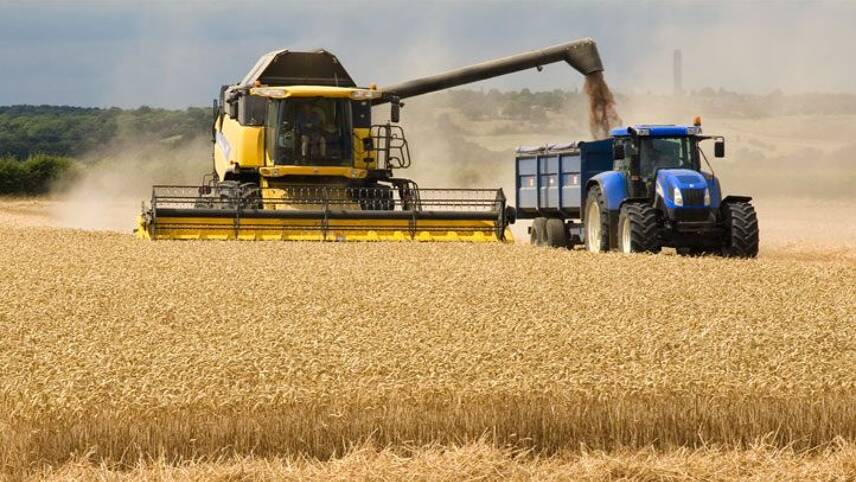Register for free and continue reading
Join our growing army of changemakers and get unlimited access to our premium content

At present
That is according to a major new report from the Food, Farming and Countryside Commission (FFCC), published today (7 January).
Entitled ‘Farming for Change’, the report maps a “no regrets” route for the farming sector to align with the UK’s long-term climate vision in the coming years. Calculations are based on a scenario in which annual emissions from the sector decrease by around 40%, with offsetting used to address the remaining 60%. ‘Insetting’ through the creation of new forests and peatlands in the UK should, in the FFCC’s opinion, be the preferred option.
The FFCC is calling for the use of all synthetic fertilisers and pesticides to be stopped. Ammonium nitrate is the world’s most widely-used synthetic fertilisers and it contributes to climate change in two ways: its production is energy-intensive and relies on fossil fuels at present, and it emits greenhouse gases once applied to crops due to chemical reactions with the soil.
At the same time, the ways in which land is used will need to be changed dramatically – and this will have an impact on our diets.
The report states that the amount of land available for “green and ecological infrastructure” including meadows and hedgerows will need to almost double by 2030. At present, only 2% of agricultural fallow land is being used this way.
A further 7.5% of land or more will need to see its use converted, according to the FFCC, as a minimum. These 1.2 million hectares should be used for woodland or other habitat creations in the main. Space could also be dedicated to increasing public access, improving social sustainability.
In recognition of the impact that animal feed has on land use – and, by extension, biodiversity loss and climate change – globally, the FFCC is calling for the UK to adopt a model in which land is prioritised for food production, then animal food production. Non-food uses like virgin biofuels should be even lower down the list of priorities.
Should land use in the UK’s farming sector change in these ways, the average UK adult will double the proportion of their diet accounted for by vegetables and more than double the proportion accounted for by plant-based proteins. Average servings of meat-based protein will decrease from three per day to one per day.
“This modelling shows how a transition to agroecology, hand in hand with a transition to healthy and sustainable diets, could allow us to restore biodiversity on farmland and spare more land for nature and trees while getting close to net-zero at home and ending the devastating impact of animal feed production in the tropics,” FFCC commissioner Helen Browning said.
Browning, also chief executive of the Soil Association, continued: “This research does not supply all the answers, but it clearly indicates that agroecology should be given serious consideration in the debates on the future of land use for climate, nature and health. It is crucial that farmers, especially those already pioneering agroecological approaches such as organic farming, are given a seat at the table in these policy debates.”
Many of the recommendations in the report align with those of the Climate Change Committee, which published its land-use recommendations for net-zero in early 2020. Land use in the UK is responsible for 12% of national annual emissions and the majority result from agriculture.
Changing policy
The publication of the report comes shortly after the UK and EU agreed a post-Brexit trade deal. Trade in most agri-food products will continue due to the deal, but farmers are not expecting a friction-free transition.
While sanctions and tariffs are off the table, non-tariff costs are likely to push up the price of some products. The UK notably imports up to 80% of all food products sold annually and makes more than £14bn of export sales to the EU every year.
Economic concerns aside, Brexit also has implications for environmental sustainability in the agri-food space. The EU’s Common Agricultural Policy has long been criticised by green groups and, in leaving the bloc, the UK has developed a new Agriculture Bill to replace the framework. The Bill includes measures that will see farmers and land managers rewarded financially for work to improve air and water quality; boost soil health; implement flood mitigation and adaptation measures; improve access to the countryside or bolster animal welfare. It also details plans to delink direct payments for farmers from a requirement to farm the land, as introduced by the EU, by 2028.
But many believe the devil will be in the detail. The ‘Path to Sustainable Farming’ strategy, developed as a mechanism for changing financial support and published in November, was criticised by organisations including the Wildlife Trusts and Wildlife and Countryside Link for being light on specifics.
Sarah George


We could seize all land at present used to make biofuels and plant them with local trees, which can then later be biochared.
The report states that the amount of land available for green and ecological infrastructure including meadows and hedgerows will need to almost double by 2030.
This quote from Sarah George’s article makes me think, that once again, policy thinking re- feeding sixty million people, is naive to say the least.
The answer seems to be buy ‘it’ in. And as for the bit about "including meadows and hedgerows" well, what can I say. Meadows grow crops (hay) to feed livestock and hedgerows keep said livestock from wandering.